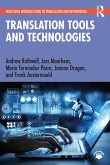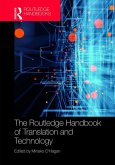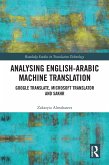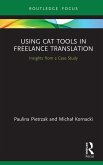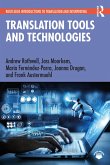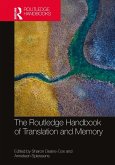Bringing together perspectives from scholars across the discipline, the book considers recent trends and developments in technology that have spurred growing interest in the use of computer-aided translation (CAT) and machine translation (MT) tools in literary translation. Chapters examine the relationships between translators and these tools-the extent to which they already use such technologies, the challenges they face, and prevailing attitudes towards these tools-as well as the ethical implications of such technologies in translation practice. The volume gives special focus to drawing on examples with and beyond traditional literary genres to look to these technologies' use in working with the larger group of creative texts, setting the stage for many future research opportunities.
The book will be of particular interest to students and scholars in translation studies, especially those with an interest in literary translation, translation technology, translation practice, and translation ethics.
Chapters 2 & 3 of this book are freely available as a downloadable Open Access PDF under a Creative Commons Attribution-Non Commercial-No Derivatives 4.0 license available at http://www.taylorfrancis.com
Dieser Download kann aus rechtlichen Gründen nur mit Rechnungsadresse in A, B, BG, CY, CZ, D, DK, EW, E, FIN, F, GR, HR, H, IRL, I, LT, L, LR, M, NL, PL, P, R, S, SLO, SK ausgeliefert werden.
"This is an important and necessary book, on a subject about which I often ponder and speculate and converse, but never know where exactly to turn to deepen my understanding. I suspect that there are many, many others out there in the same position, and they will welcome this publication too."
Polly Barton, Japanese-English prize-winning literary translator: https://www.pollybarton.net/about-me
"This is a book to be read by anyone who has a practical or theoretical interest in the newly emerging field of the use of machines in the translation of literary and creative texts, be they students of translation, translation scholars or practising literary translators."
Roy Youdale, Spanish-English literary translator and author of Using Computers in the Translation of Literary Style: Challenges and Opportunities (Routledge Advances in Translation and Interpreting Studies)
"This volume offers a fresh look at one of the most exciting areas in contemporary translation studies: computing, creativity and translation, as well as offering a new look at the interaction between technology and the translation of creative texts. With this timely contribution to one of the most exciting areas in contemporary translation studies, Hadley et al. make the case for a closer look at the role of computers in translation, even for creative texts."
Dorothy Kenny, professor of translation studies at Dublin City University
"The various authors capture the many ramifications of applied machine translation at this nascent stage of development. Overall, the volume is comprehensive, traversing the new landscape of research in translation and interpretation studies incorporating a technology that is advancing rapidly thanks to immense investments from AI research communities. The editors claim not to favor one method over another. Rather, they embrace a neutral perspective, expanding the field of translation studies by presenting the most current advancements."
K. Liu, CUNY




